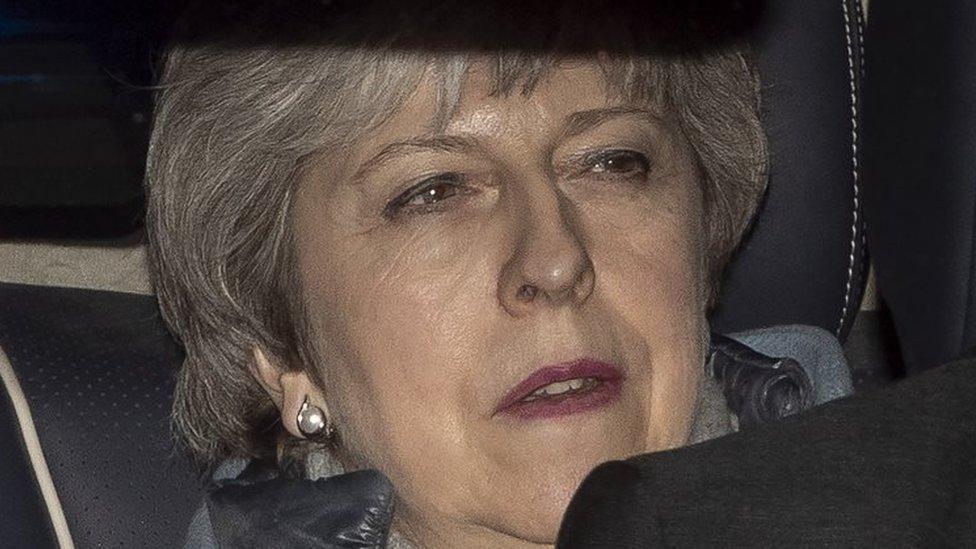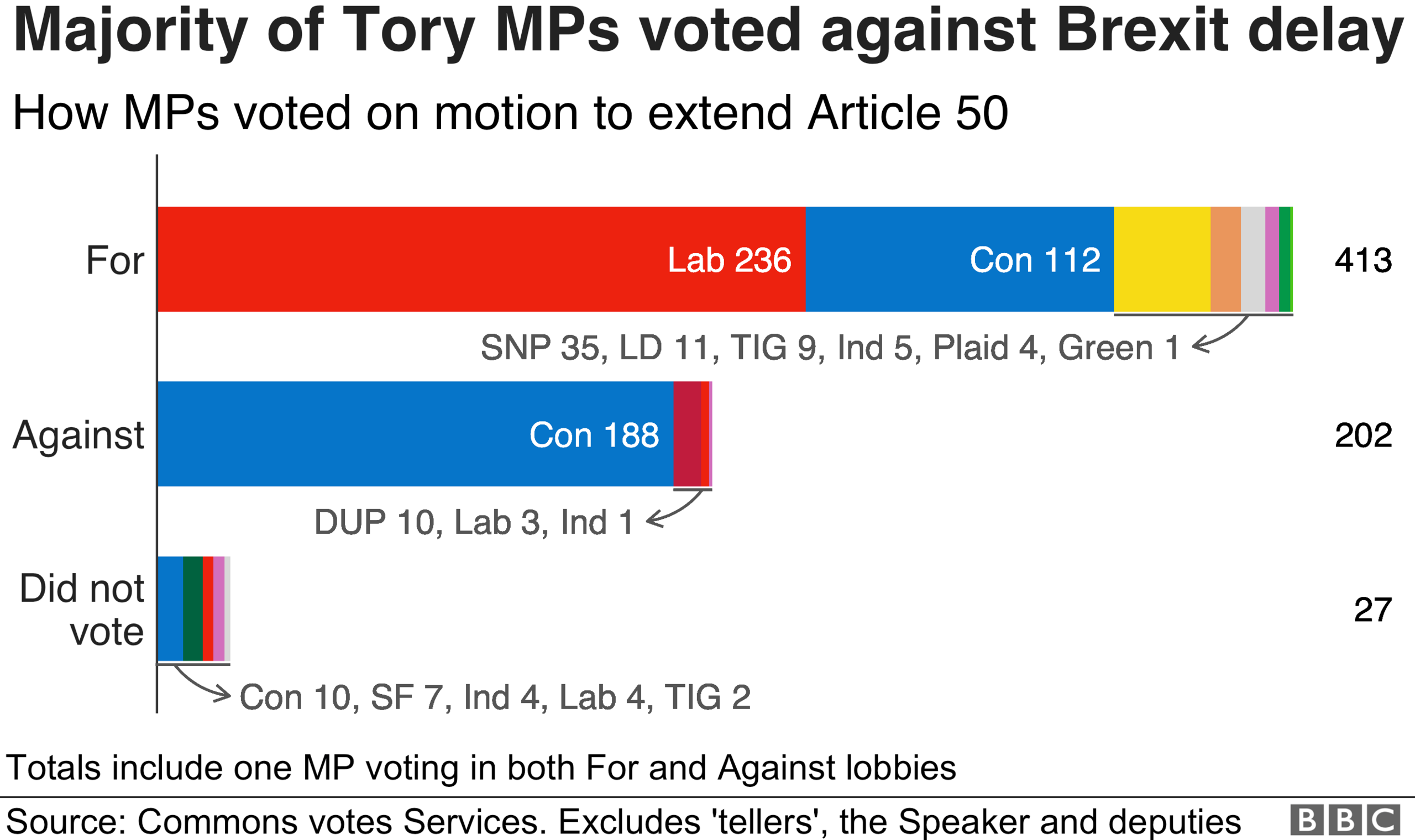March Brexit almost certainly out of reach
- Published

More than 80 times Theresa May vowed we would leave the European Union at the end of this month.
As the days, then weeks, then months passed with first delays in reaching a deal, and then MPs rejecting it twice, slowly, but surely, that date became less and less realistic.
But it was disquiet in Parliament that forced her to relinquish it publicly.
Now, it is still technically possible that we could leave at the end of this month - the law has not changed.
But politically it is now almost entirely out of reach.
The prime minister is accepting she will miss one of the biggest targets she has ever set herself.
Tonight's vote is awkward for another reason, as it again displays the Conservatives' fundamental divisions.
This is more than a quarrel among friends, but a party that is split down the middle on one of the most vital questions this administration has posed, with cabinet ministers, as well as backbench Brexiteers, lining up to disagree with Theresa May.

But it matters that Number 10 escaped an attempt by MPs from different parties to grab hold of this process in a formal way, in tonight's votes.
Assumptions have often been made about the power of former Remainers whose strength in numbers, even if narrowly, often falls short.
Now two tracks continue - Number 10 will keep working, pushing and grinding on to try again to make the case for their Brexit compromise.
And MPs will carry on hunting - and arguing - for alternatives that could take the place of that compromise if it ultimately fails.